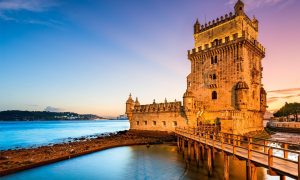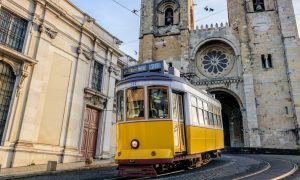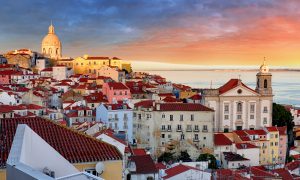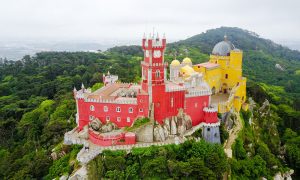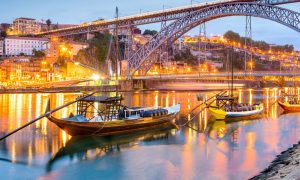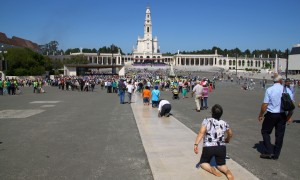The Jewish quarter of Lisbon, located in the historic neighborhood of Alfama, is a hidden gem that holds a rich and complex history. This area, also known as the Judiaria de Alfama, was once a thriving community of Jewish people who played a significant role in shaping the city’s culture and economy. Today, the remnants of this community can still be seen in the narrow streets, ancient buildings, and synagogues that have stood the test of time.
The history of the Jewish quarter in Alfama dates back to the 12th century when Jews first arrived in Portugal. They were welcomed by the Christian rulers at the time, who saw them as valuable contributors to the city’s growth and development. The Jewish community quickly established themselves as merchants, traders, and artisans, bringing prosperity to the area.
During the 15th century, Portugal was under the rule of King Manuel I, who had a close relationship with the Jewish community. He even married a Jewish woman, Dona Isabel de Aragão, and granted Jews equal rights and privileges as Christians. This period is known as the Golden Age for Jews in Portugal, and many settled in Alfama, making it their home.
However, this golden period did not last long. In 1496, King Manuel I issued a decree that forced Jews to either convert to Christianity or leave the country. Many chose to convert, but some refused and were expelled from Portugal. This marked the beginning of a dark period for the Jewish community in Alfama.
The remaining Jews were forced to live in a segregated area of Alfama, which became known as the Judiaria de Alfama. They were subjected to discrimination and persecution, and their synagogues were destroyed. Despite these challenges, the Jewish community continued to thrive and maintain their traditions and customs.
In the 16th century, Portugal became a major player in the transatlantic slave trade, and many Jews in Alfama were involved in this lucrative business. They also played a significant role in the spice trade, bringing exotic goods from Asia to Europe. This further solidified their economic importance in the city.
However, the Jewish community’s prosperity was short-lived as the Inquisition reached Portugal in the 16th century. The Inquisition was a Catholic institution that aimed to root out heresy and convert non-Christians. Many Jews in Alfama were accused of secretly practicing Judaism and were subjected to torture and execution. This led to a mass exodus of Jews from Portugal, including those in Alfama.
By the 18th century, the Jewish quarter of Alfama was almost entirely abandoned, and the remaining buildings were repurposed for other uses. The once-thriving community was reduced to a mere memory, and the area fell into disrepair.
It wasn’t until the 20th century that the Jewish quarter of Alfama began to see a revival. In 1933, Portugal’s dictator, António de Oliveira Salazar, granted religious freedom to Jews, and many returned to their ancestral home in Alfama.
Today, the Jewish quarter of Alfama is a vibrant and diverse neighborhood that celebrates its rich history and culture. Visitors can explore the narrow streets and alleyways, lined with colorful buildings adorned with traditional Portuguese tiles.
Another must-visit site near the Jewish quarter is the Miradouro de Santa Luzia. This viewpoint offers stunning views of the city and the Tagus River and is a popular spot for tourists and locals alike. It is also home to a beautiful tile panel depicting the city before the 1755 earthquake, which destroyed much of Lisbon.
Alfama is also known for its delicious food, influenced by both Portuguese and Jewish cuisines. Visitors can try traditional dishes such as pastéis de bacalhau (codfish cakes) and alheira (a type of sausage).
In recent years, the Jewish quarter of Alfama has become a popular destination for tourists looking to learn about the city’s Jewish heritage. The area has also seen a resurgence of Jewish life, with a growing community of Jews living and working in Alfama. This revitalization is a testament to the resilience and perseverance of the Jewish people.
In conclusion, the Jewish quarter of Alfama is a fascinating and significant part of Lisbon’s history. It tells the story of a community that faced persecution and discrimination but managed to survive and thrive. Today, it stands as a symbol of resilience and serves as a reminder of the importance of preserving cultural heritage. A visit to this neighborhood is a must for anyone looking to delve deeper into Lisbon’s past and experience its vibrant present.













